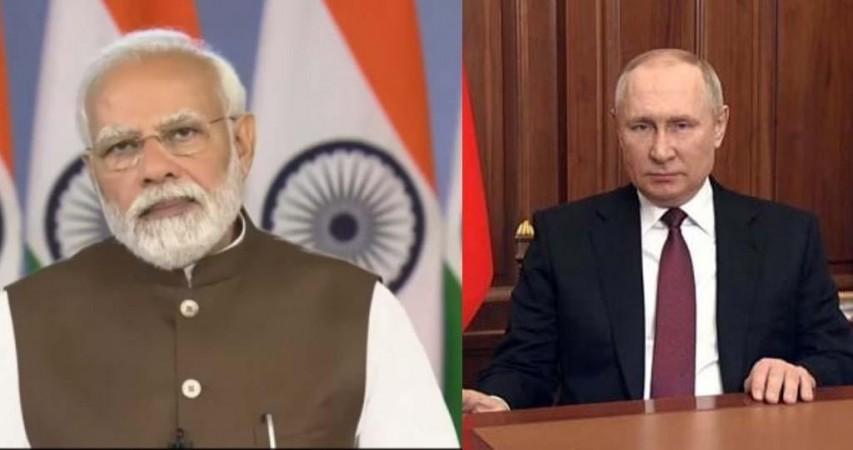
India and Russia have reaffirmed their commitment to deepening their defence partnership, a relationship that has been a cornerstone of their bilateral ties for decades. This renewed focus on defence cooperation comes at a time when global geopolitical dynamics are shifting, and both nations are navigating complex international landscapes.
On August 6, Russia's Deputy Defence Minister Colonel General Aleksandr Fomin met with Vinay Kumar, India's Ambassador to Russia, to discuss ways to further intensify the multifaceted India-Russia Special Privileged Strategic Partnership.
The meeting underscored the longstanding and wide-ranging cooperation between the two countries in the defence sector, guided by the India-Russia Inter-Governmental Commission on Military and Military Technical Cooperation (IRIGC-MMTC). This commission is headed by the Defence Ministers of both nations and serves as a pivotal platform for steering bilateral defence engagements. The discussions between Fomin and Kumar were described as taking place in a "warm and friendly atmosphere."

This partnership has evolved from a buyer-seller framework to one involving joint research and development, co-development, and joint production of advanced defence technology and systems. Historically, India and Russia have collaborated on several key defence projects, including the supply of the S-400 air defence system, the licensed production of T-90 tanks and Su-30 MKI aircraft, and the supply of MiG-29 and Kamov helicopters.
The S-400 air defence system, in particular, has been a game-changer for India's military capabilities. During the decisive Operation Sindoor in May, the Indian Armed Forces successfully retaliated against Pakistan, inflicting significant losses. The S-400 system was credited with shooting down several incoming missiles from across the border, showcasing its effectiveness in real combat scenarios. This success has prompted New Delhi to consider procuring additional S-400 systems to bolster its strategic planning and military preparedness.
Amid these developments, National Security Advisor Ajit Doval is also in Moscow, engaging in discussions with senior Russian officials to further enhance India-Russia defence and security cooperation. This visit coincides with a period of heightened tensions between India and the United States, as President Donald Trump has announced plans to impose "very substantial" increases to the 25 percent tariffs on Indian goods. The tariffs are a response to New Delhi's oil purchases from Russia, which Trump has criticized as "fuelling the war machine" by buying cheaper Russian oil and selling it for "big profits."
Russia has emphasized that sovereign nations have the right to choose their trade partners and determine the terms of economic cooperation based on their interests. India, too, has defended its sovereign right to conduct energy policy based on national interest, stating that energy purchases are guided by market dynamics and prevailing global conditions.
Related

















